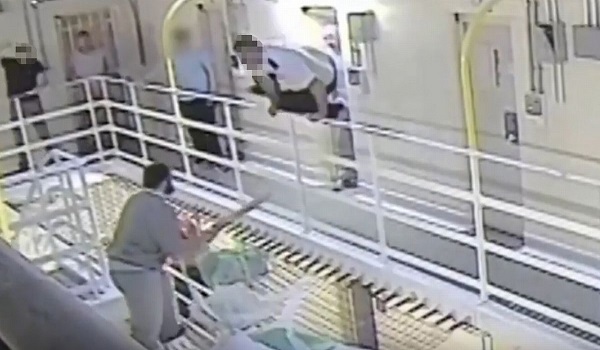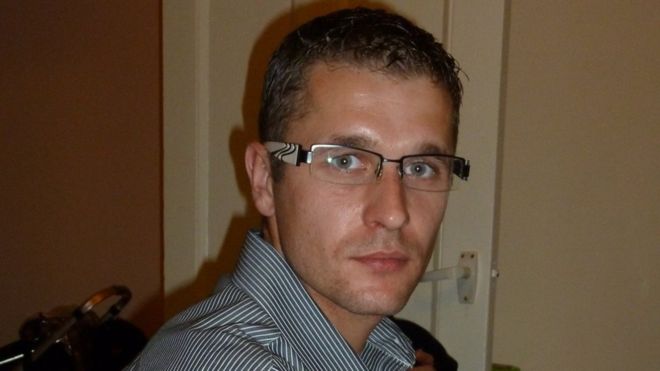IOPC highlights concern over impact of stop and search on ethnic minorities
Police forces around the country must overhaul their use of stop and search powers and address the disproportionate impact the measures have on ethnic minority groups, a review by the Independent Office for Police Conduct (IOPC) has found.
In a review published today (April 20), the IOPC has made a series of recommendations aimed at stopping the unequal targeting of black, Asian and other ethnic minority groups.
In the year to March 2021, black people were seven times more likely to be stopped and searched than white, while Asian people were two-and-a-half times more likely.
The report included one case study of a black boy who was searched more than 60 times between the ages of 14 and 16, sometimes more than once in the same day.
IOPC lead on discrimination Sal Naseem said: “We are concerned about the impact of stop and search on ethnic minority groups, in particular the negative effect it can have on public confidence in policing.
“It cannot be underestimated how traumatic a stop and search encounter can be on an individual. If carried out insensitively, a person can be left feeling humiliated and victimised.
“The experience can also be the first interaction for some young adults and if it is a negative one, this can have a lasting impact on that person and the trust they put in the police. It is time to break the cycle.
“The challenge for police forces is to build bridges with those in communities who feel marginalised so those same people feel confident in coming to police when needed.”
The recommendations include:
- The National Police Chiefs’ Council and the College of Policing draw up new guidelines to stop people from ethnic minorities being searched or subject to use of force “because of decision-making based upon assumptions, stereotypes and racial bias”;
- That the two bodies and the Home Office commission research into trauma caused by the incorrect use of stop and search;
- The ethnicity and gender of people subject to traffic stops should be recorded to see if the powers are disproportionately used against certain groups;
- Officers’ individual stop and search records should be regularly reviewed; and
- Police chiefs should make sure their officers know they are obliged to challenge inappropriate behaviour by colleagues during stop and searches.
The IOPC said that force, in particular handcuffs, must not be used as standard during searches.
It highlighted one example where a 12-year-old boy with a plaster cast on one arm was handcuffed while out running an errand for his mother. The child was restrained within 20 seconds of the officer leaving his patrol car.
The IOPC called on police chiefs to “reduce their officers’ reliance on the smell of cannabis alone” when deciding whether to carry out a search.
It also said the Home Office should review what are considered reasonable grounds for suspicion for cannabis possession, and whether any changes are needed to police powers.
Current guidelines say it is not good practice for an officer to rely on one factor alone when deciding whether to search someone, particularly if it is difficult to attribute to one person.
But in its report the IOPC said: “In some of our investigations, the smell of cannabis has either formed the sole grounds given for a stop and search, or it has been the main reason for suspicion alongside either weak, non-specific concerns about behaviour, or vague intelligence relating to geographical location.
“These examples reinforce an often-held perception that the smell of cannabis is being used as an excuse to conduct a stop and search, especially when no cannabis is then found on the individual.”
Police in England and Wales carried out 695,009 stop and searches in the year to March 2021, 77 per cent of which resulted in no further action.
Although forces often cite the powers as useful for taking weapons off the streets, 478,576 of the searches were for drugs, up 36 per cent on the previous year.
Alison Lowe, Deputy Mayor for Policing and Crime in West Yorkshire Alison Lowe said: I was deeply saddened, but not surprised to read the IOPC national stop and search learning report.
“Though the findings were depressingly familiar; evidence of race disparities in stop and search and other use of force across the board, the opportunity to change this landscape by implementing the published recommendations gives me hope.
“I am particularly struck by the positive work already being undertaken here in West Yorkshire where recommendations into the routine use and monitoring of Body Worn Video are well embedded.
“Trauma-informed training is being rolled out across the force and supervisors also actively review stop and searches from start to end including use of de-escalation, communication with the public and learning any lessons, as well as cultural competence training.”
Ms Lowe, who is also Joint Chair of the Association of Police and Crime Commissioners (APCC) Race Disparity Working Group that fed into the report, said that it gave opportunities for crucial learning to take place.
“As part of my national portfolio with the APCC Race Disparity Working Group, we will consider this report and its recommendations as part of our ongoing work to tackle race disparity and improve communities’ confidence in policing and the criminal justice system.
“We are also working closely with the National Police Chiefs’ Council (NPCC) and other organisations on the Race Inclusion Plan which we hope will also consider these recommendations carefully.
“I am keen to understand how we can develop the recommendations into use of S.163 of the Road Traffic Act, which West Yorkshire was part of the national pilot programme for in 2017, and also how we can improve our communities’ engagement in scrutinising policing for the benefit of all.
“We know that West Yorkshire Police are doing significant positive work in this area, but this report does highlight more can be done by all forces and this is a crucial step in the right direction.”







